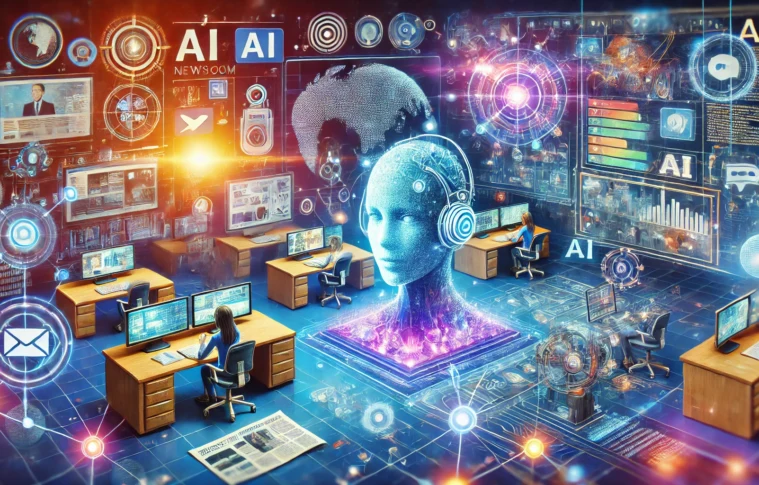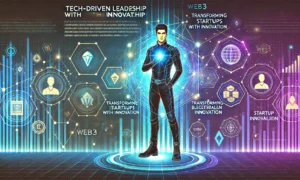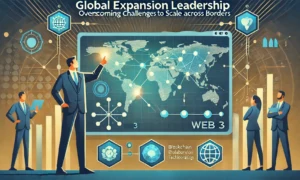Artificial intelligence (AI) is revolutionizing the media and communication industries, reshaping how content is created, distributed, and consumed. From automating news production to personalizing user experiences, AI’s influence is pervasive, offering unprecedented opportunities while raising important ethical and societal questions.
Key Ways AI is Transforming Media and Communication
- Automating Content Creation:
- AI tools are generating articles, social media posts, and even video content at scale.
- Example: Platforms like OpenAI’s ChatGPT and Jasper AI are helping content creators draft copy, headlines, and scripts.
- Personalizing User Experiences:
- AI-driven recommendation systems, such as those used by Netflix and YouTube, analyze user behavior to deliver tailored content.
- This personalization keeps users engaged, increasing platform retention rates.
- Streamlining Journalism:
- Newsrooms are using AI to analyze large datasets, identify trends, and generate reports quickly.
- Example: Reuters uses AI to deliver automated financial news reports in real time.
- Enhancing Visual Content:
- AI-powered tools like Adobe’s Sensei and Canva’s AI design features enable creators to produce high-quality visuals with minimal effort.
- AI also plays a role in deepfake technology, which has both creative and controversial applications.
- Improving Communication Efficiency:
- AI chatbots and virtual assistants are facilitating real-time communication between businesses and consumers.
- Example: AI-powered customer service bots on platforms like WhatsApp and Messenger offer 24/7 support.
AI’s Impact on the Media Industry
- Faster Content Production:
- AI significantly reduces the time needed to produce media content, enabling faster responses to breaking news and trends.
- Lower Costs:
- By automating repetitive tasks, AI lowers operational costs for media companies, allowing them to allocate resources toward strategic initiatives.
- Global Reach:
- AI translation tools, such as Google Translate and DeepL, are breaking down language barriers, enabling content to reach diverse audiences.
- Interactive Storytelling:
- AI is enabling immersive storytelling experiences through technologies like virtual reality (VR) and augmented reality (AR).
Challenges in AI-Driven Media
- Ethical Concerns:
- AI-generated content can lead to misinformation and fake news, undermining trust in media.
- Deepfake videos and manipulated images raise questions about authenticity and accountability.
- Job Displacement:
- Automation may replace certain roles, such as junior journalists, video editors, and graphic designers, necessitating workforce reskilling.
- Bias in AI Algorithms:
- AI models can inadvertently reflect biases present in their training data, leading to skewed or unfair representations.
- Privacy Issues:
- Personalized recommendations rely on extensive user data, raising concerns about privacy and data security.
The Role of AI in Communication
- Real-Time Translations:
- AI-powered tools like Skype Translator and Zoom AI Transcription enable seamless communication across languages.
- Improving Accessibility:
- AI tools are making communication accessible to individuals with disabilities through speech-to-text, text-to-speech, and sign language recognition technologies.
- Boosting Marketing Campaigns:
- AI analytics tools help marketers target specific audiences, optimize ad placements, and predict campaign outcomes.
The Future of AI in Media and Communication
- Hyper-Personalized Content:
- AI will enable media platforms to create content tailored not only to individual preferences but also to specific contexts, such as location and time of day.
- Ethical AI Frameworks:
- Governments and organizations are likely to implement stricter guidelines to ensure responsible AI usage in media and communication.
- AI-Augmented Creativity:
- Rather than replacing human creativity, AI will increasingly collaborate with creators to produce innovative content and storytelling formats.
- Enhanced Consumer Engagement:
- AI will enable deeper interaction between media producers and audiences through tools like interactive AI-driven narratives.
Final Thoughts
AI is transforming media and communication in profound ways, creating opportunities for innovation while raising critical ethical and societal challenges. As the industry continues to evolve, striking a balance between technological advancement and responsible use will be key to ensuring AI enriches our media landscape.
Stay tuned to our news section for more updates on how AI is revolutionizing industries and shaping the future of communication!



